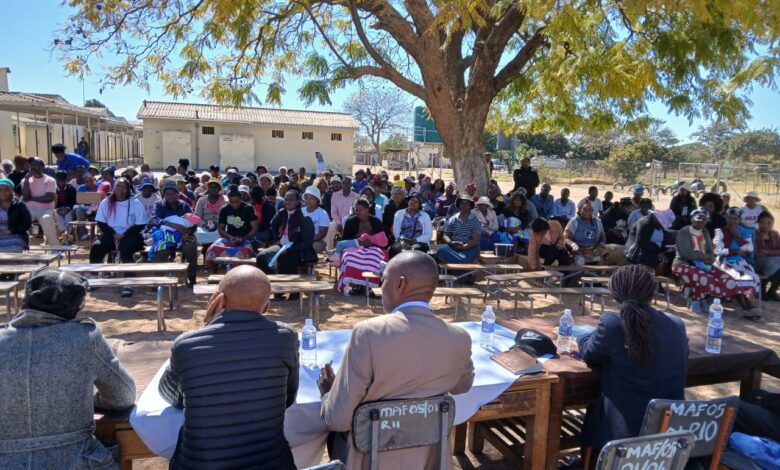MP Discent Bajila, Clarifies Mafakela Primary School Examination Controversy.

Providence Moyo
Bulawayo, August 6, 2025 – Hon. Discent Collins Bajila, Member of Parliament for Emakhandeni-Luveve Constituency, has shed light on the recent controversy surrounding Mafakela Primary School, where learners were allegedly denied the opportunity to write their mid-term examinations due to bus levy arrears.
In a fact-finding meeting with parents and the School Development Committee yesterday, Hon. Bajila revealed that the issue was not about bus levy arrears but rather a stationery shortage that led to a staggered examination schedule. According to Hon. Bajila, learners who had paid in full were allowed to sit for the examinations first, and their question papers were reused by learners with school fees arrears.
While acknowledging that this approach was discriminatory, Hon. Bajila emphasized that it was the only available alternative given the circumstances. The meeting highlighted the need for school authorities to ensure uninterrupted access to education for all learners and for parents to fulfill their obligations in paying school fees on time.
Hon. Bajila also noted that no demand or threat had been issued regarding the bus levy and that external communications on the matter were inappropriate. The meeting called for full cooperation between school authorities, parents, and community leaders to maintain Mafakela Primary School’s excellent pass rates in Khami District of Bulawayo Province.
In conclusion, Hon. Bajila emphasized the importance of working together to ensure the best possible outcomes for all learners. “Working Together. Doing Our Best. For everyone,” he said, reiterating the need for collective effort in supporting the education system.
The clarification comes after widespread media reports on the issue, which Hon. Bajila said did not accurately reflect the situation. The MP’s intervention is expected to bring relief to parents and learners at Mafakela Primary School and serves as a reminder of the importance of collaboration in resolving education-related challenges.





